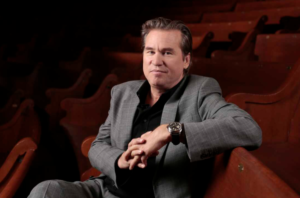What I Wish I Knew As An Education Major

Image Courtesy of Edutopia.org
By Katie Van Lew
Education in its essence bears not only the gift of knowledge, but also provides an avenue to new life. Teaching children extends beyond tedious note-taking, assigning papers, and making kids navigate Beowulf. Being an English teacher allows children to explore their own identities, perceptions, and world view through enriching children through literature.
Education majors at Catholic University are able to master the art of teaching, while simultaneously gaining a degree in another concentration. Students can choose to pursue an education degree in early childhood education, elementary education, or secondary education. Additionally, students are able to pair their education degree with a concentration in English, Mathematics, or History. It is pertinent in pursuit of the education field that the individual student masters their chosen concentration. The teacher is, after all, going to be teaching students their own specific concentration; therefore, education majors must dedicate themselves to become an expert in their own area of study.
As a liberal arts major, education majors are required to fulfill studies in philosophy, language, mathematics, and science, as well as the set requirements for their concentration. By sophomore year, students begin to explore courses such as the History of Education, as well as the Psychology of Education. It is imperative that students keep all required textbooks for the class. Although education is adapting and advancing, in the constantly progressing world today, these courses in history and education are foundational. Education students should keep their Psychology of Education book, as it shows how students learn as well as provides diverse pedagogies for teachers to utilize.
During the Psychology of Education course, students are required to tutor another student for 10 hours. One way to accomplish this requirement is through DCReads, a program offered at Catholic University through which college students are able to tutor and mentor students. After the 10 required hours are complete, students should most definitely consider continuing to tutor. Although tutoring a student differs from the hefty responsibilities that a teacher has, it allows education majors to experience firsthand what it means to help students achieve their full potential.
“I had the opportunity to formally tutor a student a year ago for an education class, and working with that student is honestly one of my proudest moments,” said senior education Studies major Mary Strycula. “I went in with little experience of tutoring, though I’d had other teaching experience, and I undoubtedly made many mistakes along the way, but there was nothing better than the feeling of seeing her improving test scores in subjects that we had worked on together. As cliche as it sounds, I firmly believe that she taught me just as much as I taught her.”
During junior year, students begin their student observations. During these excursions, students go off campus to a variety of local D.C. schools, and are able to witness firsthand how teachers cultivate and nurture the minds of their students. Students are required to sit in on classrooms and observe teachers for 30 hours. During this time, it is strongly recommended that students sit in on multiple classrooms. Teachers are unique; each has their own teaching style and methods that they implement in their classrooms. It is important that students sitting in on the classrooms keep a journal, and take note of methods and strategies used in the classroom, as well as their effectiveness. Not every classroom is going to yield 100% enthusiasm. There will be days where students are tired and unmotivated, even if the teacher is giving everything he/she has to make the lesson as digestible as possible for students. Sometimes students won’t be receptive, so it is important, along with keeping detailed notes about the teaching methods used, to capture students’ reactions, as well as what the teacher does to keep students engaged.
In addition to student observations, junior year students will take courses related to teaching methods as well as literacy in different content areas. Required textbooks for these courses are important as it will lay the groundwork for lesson plans that education students are required to make junior and senior year. When making lesson plans, it is pivotal to begin constructing lesson plans as soon as it is assigned. During the fall semester of junior year, students are required to make six lesson plans that are due after Thanksgiving. It can not be emphasized enough that students should begin constructing their lesson plans promptly, but also with structure. Students should make sure to first build a lesson plan that adheres to the Common Core standards, as well as revisit educational psychology and methods textbooks.
When crafting these lesson plans, students are required to cite their sources. It is important that when reading the required texts, students should take note of any methods and instructional strategies that they believe would be useful in their own classroom. When creating the lesson plans, students should envision the role of an educator in a classroom, beginning to think and act like one.
In the current pandemic climate, teachers have been displaced from their cozy and lively classrooms and have been forced to teach via video conferencing apps such as Zoom. In a time of ambiguity for the teaching profession, the promise of shaping and transforming the lives of students keeps hope for educators everywhere alive.
Teachers’ valiant efforts are not without opposition from flawed educational systems across the country. Oftentimes, teachers are forced to adhere to a curriculum that is outdated, causing students to become disinterested relatively quickly. The many disparities in education, such as the achievement gap, shows how the educational system has the potential to emphasize grades rather than content. Teachers must fight for the student, crafting meticulous lesson plans that emphasize cognitive thinking and a thirst for knowledge.
“Before I got involved in the field, I had no idea how disorganized and unsystematic the American education system is,” said senior secondary English education major, Marisa Sirkin. “I began with a desire to make a difference in the lives of children, which has proved to be quite the formidable task. In order to make a change, you have to be willing to take on the entire system.”
Despite the adversity that teachers face in flawed educational systems across the county, teachers excel in fostering minds that produce excellence, blossoming into individuals who come into their own identities, and take the world by storm. Students are the future: future scientists, engineers, philosophers, architects, artists, politicians, and so much more. There is nothing more rewarding than having an active hand in crafting that future.






